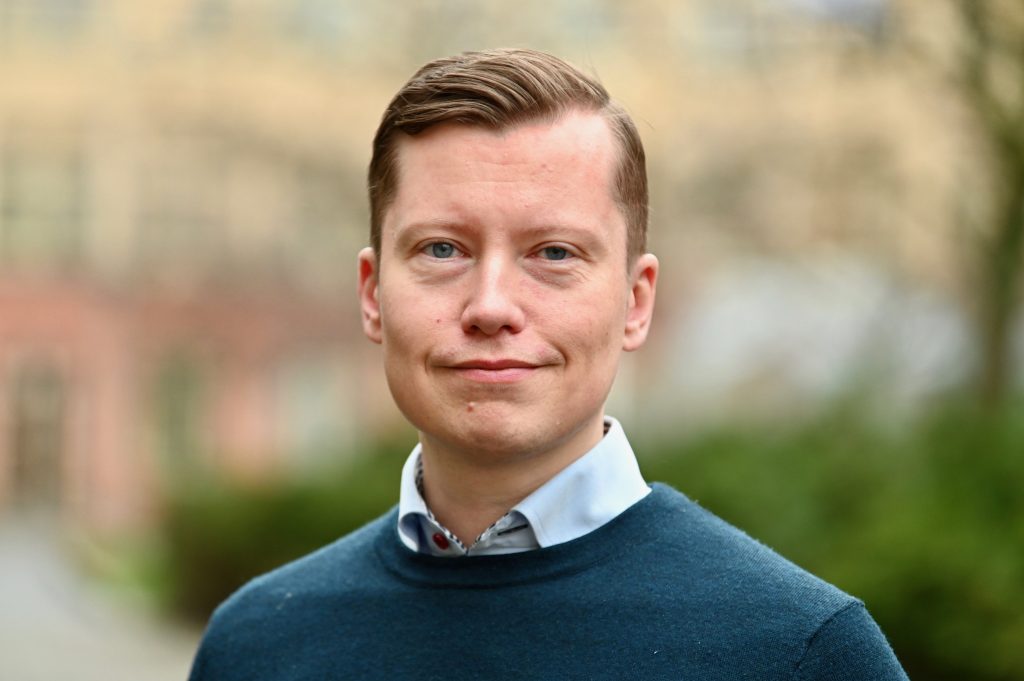By now, everyone has heard about the importance of networking to get their dream job. But what does having a network really mean for your career? What should it look like and how should we think about networking in general? To answer some of these questions, the Alumni Office met Nils Gustafsson, senior lecturer at the Department of Strategic Communication at Lund University. He is part of a study called “Network and net worth,” which aims to explore how informal networks develop and why they vary. More information about the study can be found at the end of this post.

What is networking?
“It’s actually quite a nebulous concept. Different people have different attitudes to it. Some people are happy with a few close friends, whereas some are almost the opposite, preferring to have hundreds of superficial acquaintances. For most people, networking is not something you actively think about. You just start working in a new place, start studying at university or end up in various contexts. In each case, you come across other people that you start talking to and get to know.”
Nils Gustafsson thinks that the larger and more diversified your network is, the more you gain from it. However, there are also advantages to smaller networks that can provide support:
“There is research indicating that for career-oriented female students, it is beneficial to combine large and small networks; to have a close group of female friends made up of people who, in turn, have a large network. This provides both types of contacts. You have the social support, but also access to important information.”
It is also important to have both horizontal and vertical networks, Nils Gustafsson underlines. Horizontal networks are people of your own age or at the same stage in life, whereas the vertical networks consist of people who are both older and younger. Those who are older can function as mentors and help you to gain access to other contacts, while you can perhaps act as a guide to a younger person. To most people, networking appears to be random, but some people consider networking to be more strategic. These people are known as Switchers in the research:
“Some people deliberately go around and mingle in all the contexts in which they operate. They connect different networks and it is also thought that they sometimes fill structural gaps: if you find yourself between two friend groups and you connect them, you create a privileged position for yourself, according to this network theory, because you control the flow of information between these groups.”
How has the Covid-19 pandemic affected networking?
“I am thinking particularly about students and people who have started new jobs during the pandemic. It is much more difficult for them to join a new community and meet their colleagues spontaneously. So much in the way we create relationships gives the impression of happening spontaneously, but it is difficult to meet digitally in a spontaneous way. Some people might think it is not difficult, as we are used to digital communication and contacting each other in various apps, but I still think it is significantly more difficult than in real life. On the other hand, if you can create forums for people to meet physically despite the pandemic, I think it becomes easier. When you have met someone in real life once, it probably becomes easier to stay in touch with them even if you can’t have physical meetings.”

Nils Gustafsson’s 5 best networking tips:
Relax and dare to talk to strangers: You should do things you are comfortable doing, but it can be a good idea to venture beyond your comfort zone. One thing that many people find difficult, is talking to strangers. If you think it is hard to talk to people you don’t know, and find it awful to be at an informal gathering or in a similar situation, you can try this out a little in everyday life. When you go shopping, pick up a parcel or ride the bus, try saying a few extra words to the stranger facing you.
Talk to people who are not like you: People tend to want to socialise with people who are similar to themselves. Perhaps they dress in the same way, have the same sense of humour, background or come from the same place. It is very unusual for it to be damaging or dangerous to speak to someone who does not look like you. It is also a way to practise going beyond your own social circle.
Maintain your relationships: It is important to safeguard and maintain the relationships that you enjoy. Although it can be more difficult to stay in touch with others during certain life stages, it pays off in the long run to keep in contact with your friends. Maintaining relationships is not only strategic for access to information, but for your well-being as a person. We need these relationships.
Network with people who are younger than you: Because people like similarity, they often tend to socialise with people in their own age group. Good long-term advice is therefore to network with people who are younger than you. Sooner or later you can end up feeling very lonely if you don’t have any younger contacts.
Don’t be too strategic: Don’t consider people as resources to be used to get ahead, but as human beings with whom you can have a relationship. Even if you are strategic, it can be dangerous only to think strategically in your networking, as people do not want to feel exploited; they want to feel that they have a genuine relationship with others.
Network and net worth
The aim of the study is to explore how informal networks develop and why they vary.
The research team consists of Gergei Farkas from Linnaeus University, Anna Tyllström from the Institute of Future Studies and Nils Gustafsson from Lund University.
The study is funded by the Bank of Sweden Tercentenary Foundation.
The study “Network and net worth” is longitudinal and runs between 2018 and 2022, with the researchers following students on a number of business and economics programmes in Sweden and Finland, from their first semester to their entry into professional life. This year is the second round of data collection through surveys and interviews. Students on business and economics programmes, in particular, often end up working in the private sector. However, despite approximately the same number of women and men attending these programmes since the 80s, men still occupy the majority of leadership positions. The “Network and net worth” study is therefore based on the question of why the distribution between men and women in the business elite is so unequal and whether access to informal networks could be one of the reasons.
One general trend that has already been observed is that women prefer to socialise with women and men prefer to socialise with men. People simply want to socialise with others who are similar to them. Besides answering questions concerning women and men on these programmes, the researchers will be able to determine whether different social backgrounds impact people’s opportunities for networking and careers. Is it sufficient to be a diligent student in business school or do you need your relatives to have been diligent for 100 years for you to stand a chance? This is one question Gustafsson hopes the study will be able to answer. “The study will also be able to contribute to society with a general understanding of the significance of informal networks for society as a whole”, explains Nils Gustafsson.

